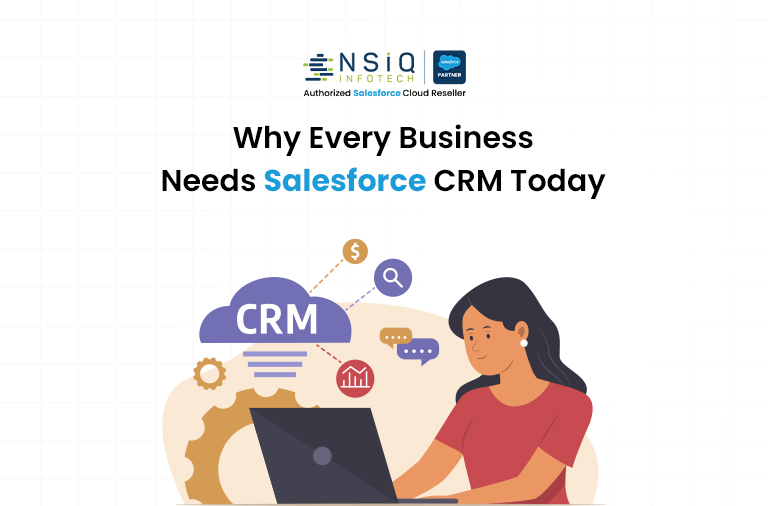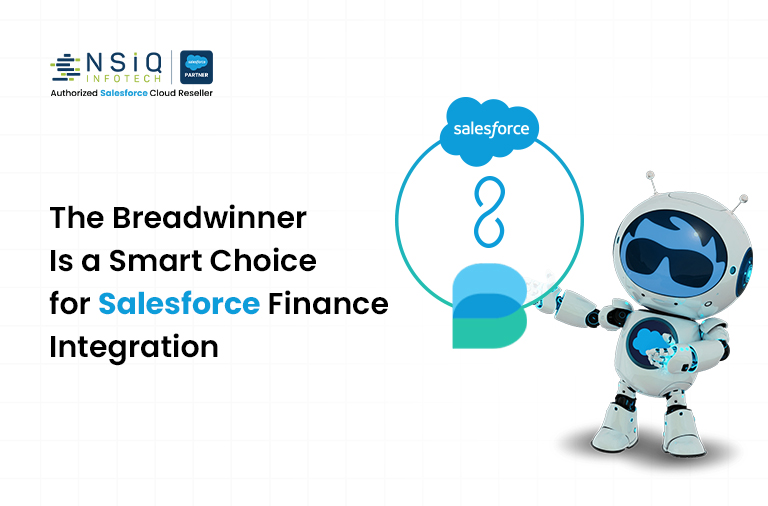Empowering Remote Work Success with Salesforce

Introduction
In today’s dynamic work environment, the ability to adapt to remote work has become essential for businesses of all sizes. With the right tools and strategies in place, organisations can empower their teams to collaborate effectively, stay productive, and deliver exceptional results from anywhere in the world. In this blog post, we’ll explore how Salesforce, a leading CRM platform, can be leveraged to support remote work initiatives and drive success in the digital age.
-
Enhancing Collaboration with Salesforce Anywhere:
- Introduce Salesforce Anywhere as a powerful collaboration platform that integrates seamlessly with Salesforce CRM.
- Discuss how Salesforce Anywhere enables real-time communication, document collaboration, and project management, allowing remote teams to work together efficiently.
- Highlight features such as chat, video conferencing, file sharing, and task management that facilitate collaboration and foster a sense of connectedness among remote team members.
-
Streamlining Workflows with Salesforce Automation:
- Explain how Salesforce automation tools, such as Process Builder and Flow Builder, can automate repetitive tasks and streamline workflows for remote teams.
- Provide examples of common use cases for automation, such as lead routing, email notifications, and approval processes, and demonstrate how they can improve productivity and efficiency in a remote work setting.
- Share best practices for designing and implementing automated processes in Salesforce to maximise their impact on remote work success.
-
Leveraging Salesforce Mobile App for On-the-Go Productivity:
- Highlight the benefits of the Salesforce mobile app for remote workers who need access to critical information and functionality while on the go.
- Showcase key features of the Salesforce mobile app, such as account management, opportunity tracking, and activity logging, that empower remote employees to stay productive from anywhere with an internet connection.
- Provide tips for optimising the mobile user experience and ensuring seamless integration with desktop workflows for remote teams.
-
Leveraging Salesforce Sales Cloud for Remote Operations:
- Highlight the capabilities of Salesforce Sales Cloud for remote sales teams, including lead management, opportunity tracking, and pipeline visibility.
- Discuss how Salesforce Sales Cloud empowers remote sales professionals to drive revenue growth through personalised engagement, data-driven insights, and efficient sales processes.
- Provide examples of organisations leveraging Salesforce Sales Cloud to adapt to remote selling environments and achieve sales success in a digital-first world.
-
Providing Exceptional Service with Salesforce Service Cloud:
- Introduce Salesforce Service Cloud as a comprehensive customer service solution that enables businesses to deliver exceptional support experiences to remote customers.
- Discuss key features of Salesforce Service Cloud, such as case management, knowledge base access, and omni-channel support options, that empower remote service teams to resolve issues quickly and efficiently.
- Provide examples of organisations leveraging Salesforce Service Cloud to deliver seamless customer service experiences across digital channels and drive customer satisfaction and loyalty in remote markets.
-
Personalising Customer Engagement with Salesforce Marketing Cloud:
- Discuss how Salesforce Marketing Cloud enables businesses to deliver personalised and targeted marketing campaigns across multiple channels, including email, social media, and mobile, to engage remote customers effectively.
- Highlight features such as Journey Builder, Email Studio, and Social Studio that empower marketers to create and automate personalised customer journeys tailored to the needs and preferences of remote audiences.
- Share examples of successful remote marketing campaigns powered by Salesforce Marketing Cloud and showcase the measurable impact on customer engagement and ROI.
-
Empowering Financial Insights with Salesforce Financial Cloud:
- Introduce Salesforce Financial Cloud as a comprehensive solution for financial institutions to manage customer relationships, transactions, and financial data securely in a remote environment.
- Discuss key features of Salesforce Financial Cloud, such as wealth management, banking capabilities, and insurance solutions, that enable remote finance professionals to make informed decisions and drive client satisfaction.
- Provide examples of how financial organisations are leveraging Salesforce Financial Cloud to adapt to remote work requirements and deliver personalised financial services to clients.
-
Harnessing Data Insights with Salesforce Data Cloud:
- Highlight the role of Salesforce Data Cloud in providing access to a vast ecosystem of external data sources that can enrich customer profiles, enhance segmentation, and drive data-driven decision-making for remote teams.
- Discuss how organisations can leverage Salesforce Data Cloud to integrate external data seamlessly into their Salesforce CRM instance, enabling remote sales, marketing, and service teams to access valuable insights and drive meaningful interactions with customers.
- Share examples of how businesses are leveraging Salesforce Data Cloud to gain a competitive edge in remote markets by leveraging data-driven strategies to drive growth and profitability.
-
Facilitating Seamless Transactions with Salesforce Commerce Cloud:
- Introduce Salesforce Commerce Cloud as a leading e-commerce platform that enables businesses to deliver personalised, seamless shopping experiences across digital channels to remote customers.
- Discuss key features of Salesforce Commerce Cloud, such as AI-powered personalization, omni-channel commerce capabilities, and order management, that empower remote retailers to drive revenue and customer loyalty.
- Provide examples of successful remote commerce initiatives powered by Salesforce Commerce Cloud and highlight the role of digital innovation in driving growth and resilience in remote markets.
-
Enabling Seamless Integration with Salesforce Integration Cloud:
- Introduce Salesforce Integration Cloud as a platform that enables seamless integration of Salesforce with other applications and data sources, allowing businesses to unify their data and processes across systems.
- Discuss key features such as pre-built connectors, API management, and data mapping tools that streamline integration efforts and enable real-time data exchange between Salesforce and external systems.
- Provide examples of common integration scenarios, such as connecting Salesforce CRM with ERP systems, marketing automation platforms, and customer service tools, to improve data visibility and decision-making in remote work environments.
-
Ensuring Data Security and Compliance with Salesforce Shield:
- Highlight the importance of data security and compliance in remote work environments and introduce Salesforce Shield as a solution that provides advanced data encryption, monitoring, and compliance capabilities within Salesforce.
- Discuss key features such as event monitoring, encryption, and data loss prevention that help organisations protect sensitive data and ensure compliance with regulations such as GDPR, HIPAA, and CCPA.
- Provide tips for implementing Salesforce Shield policies and monitoring tools to maintain data security and compliance standards in remote work environments and mitigate the risk of data breaches or regulatory violations.
-
Driving Employee Engagement with Salesforce Work.com:
- Introduce Salesforce Work.com as a platform that helps organisations manage employee wellness, safety, and productivity in remote and distributed work environments.
- Discuss key features such as employee wellness assessments, workforce planning, and employee engagement tools that enable organisations to support their remote workforce and foster a positive work culture.
- Provide examples of how businesses are leveraging Work.com to implement remote work policies, track employee performance, and ensure employee well-being in remote work environments.
-
Optimising Customer Insights with Salesforce Analytics Cloud:
- Highlight the role of Salesforce Analytics Cloud in providing actionable insights and predictive analytics capabilities that enable businesses to understand customer behaviour, identify trends, and make data-driven decisions in remote markets.
- Discuss key features such as AI-powered analytics, customizable dashboards, and predictive forecasting that empower remote teams to uncover valuable insights and drive business growth.
- Provide examples of how organisations are leveraging Salesforce Analytics Cloud to optimise customer engagement strategies, improve sales forecasting accuracy, and enhance overall business performance in remote work environments.
-
Optimising Revenue Operations with Salesforce Revenue Cloud:
- Introduce Salesforce Revenue Cloud as a comprehensive solution designed to optimise revenue operations and drive growth across the entire revenue lifecycle.
- Explain how Salesforce Revenue Cloud seamlessly integrates pricing, quoting, billing, and revenue recognition processes with Salesforce CRM, enabling organisations to manage revenue operations efficiently from lead to cash.
- Highlight key features such as automated pricing guidance, intelligent quoting, flexible billing models, and compliant revenue recognition capabilities that empower remote sales and finance teams to accelerate sales cycles and improve revenue outcomes.
- Provide examples of how organisations are leveraging Salesforce Revenue Cloud to streamline revenue processes, improve pricing accuracy, reduce revenue leakage, and enhance overall revenue performance in remote and distributed work environments.
- Share success stories of businesses achieving tangible results, such as faster deal closures, increased deal sizes, improved cash flow visibility, and enhanced customer satisfaction, by leveraging Salesforce Revenue Cloud to drive revenue success in remote work settings.
-
Empowering Manufacturing Excellence with Salesforce Manufacturing Cloud:
- Introduce Salesforce Manufacturing Cloud as a specialised solution designed to empower manufacturers with real-time visibility, collaboration, and predictive insights across the entire manufacturing process.
- Discuss how Salesforce Manufacturing Cloud enables manufacturers to connect sales, operations, and finance teams on a single platform, providing a unified view of customers, orders, and production data to drive operational efficiency and customer satisfaction.
- Highlight key features such as account-based forecasting, order orchestration, and partner collaboration tools that empower remote manufacturing teams to anticipate demand, optimise production planning, and deliver products on time and at scale.
- Provide examples of how manufacturers are leveraging Salesforce Manufacturing Cloud to improve demand forecasting accuracy, reduce inventory costs, and streamline supply chain operations in remote work environments, leading to increased productivity and profitability.
-
Transforming Healthcare Delivery with Salesforce Health Cloud:
- Introduce Salesforce Health Cloud as a transformative solution that enables healthcare organisations to deliver personalised patient care, improve care coordination, and drive better health outcomes.
- Discuss how Salesforce Health Cloud allows healthcare providers to consolidate patient data from multiple sources, including electronic health records (EHRs), medical devices, and wearables, into a single, unified view, accessible securely from anywhere.
- Highlight key features such as care team collaboration, patient engagement tools, and interoperability capabilities that empower remote healthcare teams to deliver coordinated care, communicate effectively with patients, and make informed clinical decisions.
- Provide examples of how healthcare organisations are leveraging Salesforce Health Cloud to enhance telehealth services, manage population health, and improve patient outcomes in remote and distributed care settings, while ensuring compliance with privacy and security regulations.
-
Salesforce Government Cloud:
- Facilitates remote collaboration and communication among government employees.
- Enables digitization of citizen services, making them accessible online.
- Provides robust security features to ensure data protection in remote environments.
- Offers scalability and flexibility to adapt to changing demands without heavy infrastructure investments.
- Supports remote training and development for government employees.
-
Salesforce Nonprofit Cloud:
- Manages constituents, donors, and volunteers remotely from a centralised database.
- Conducts virtual fundraising campaigns and manages donor relationships online.
- Tracks program outcomes and measures impact remotely through customizable reports and analytics.
- Engages and manages volunteers through online portals and communication tools.
- Streamlines grant management processes, including applications and reporting, remotely.
-
Leveraging Einstein AI for Intelligent Insights:
- Introduce Einstein AI as Salesforce’s artificial intelligence platform that empowers organisations with intelligent insights and automation capabilities.
- Discuss how Einstein AI can enhance remote work processes by providing predictive analytics, personalised recommendations, and automated workflows tailored to the needs of remote teams.
- Provide examples of how organisations are leveraging Einstein AI to drive productivity, efficiency, and innovation in remote work environments across sales, service, marketing, and beyond.
Conclusion:
As remote work continues to reshape the modern workplace, organisations must embrace technology solutions that empower their teams to thrive in a distributed environment. By leveraging the capabilities of Salesforce, businesses can enhance collaboration, streamline workflows, personalise customer engagement, and foster a strong remote team culture. With the right tools and strategies in place, remote work can become not just a necessity, but a catalyst for innovation, growth, and success in the digital age.
related blog



